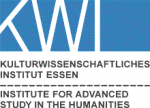These are the slides of a 2009 lecture at the Institute for Advanced Study in the Humanities in Frankfurt Germany.
Slovene Privatization ESOP
This 1991 paper, coauthored with Uros Korze and Marco Simoneti, described the type of ESOP model in the Mencinger-Korze-Simoneti draft privatization legislation.
Brain drain and development
This paper analyzes the literature on migration and development focusing on the skilled labor brain drain problem.
Critique of Microfinance
This was my first published critique of the microfinance development fad.
Knowledge-Based Development Assistance
This paper explores the problems of development assistance that focuses on knowledge instead of capital. The vision of the World Bank as a “Knowledge Bank” is a case in point.
Hirschmanian Themes of Social Learning and Change
There are a number of themes that converge to suggest “Hirschmanian” alternatives to centralized top-down social engineering models of reform, social change, and development. Hirschman responded to the balanced growth, big push, and development planning models with an alternative framework of “unbalanced growth.” The limited powers of cognition and implementation of central authorities in the face of the complexity of organizational, institutional, and social realities do not give much hope for social engineering approaches. Learning, experimentation, and a one-size-does-not-fit-all pragmatism are basic to any alternative to the planning, command, and control models of development.
Labour Migration: A Developmental Path or a Low-level Trap?
Migration issues are much discussed today. Our topic is the debate about the developmental impact of migration on the sending countries. Throughout the post-WWII period, temporary labor migration (e.g., South-east Europe to West Europe or Mexico to the United States) has been promoted as a path to development. Remittances have grown to rival or surpass official development assistance and have increased the living standards in the sending countries. However, the evidence over the decades is that the remittances do not lead to development or even to higher incomes sustainable without further migration.
How Do We Grow? Jane Jacobs on Diversification and Specialization
This recent paper from Challenge (May-June 2005) gives an expanded treatment of Jane Jacobs’ economic thought focusing on her theory of development and growth (or the lack thereof). In particular, it explains her remarkably insightful and unorthodox treatment of the issues of specialization and comparative advantage.





